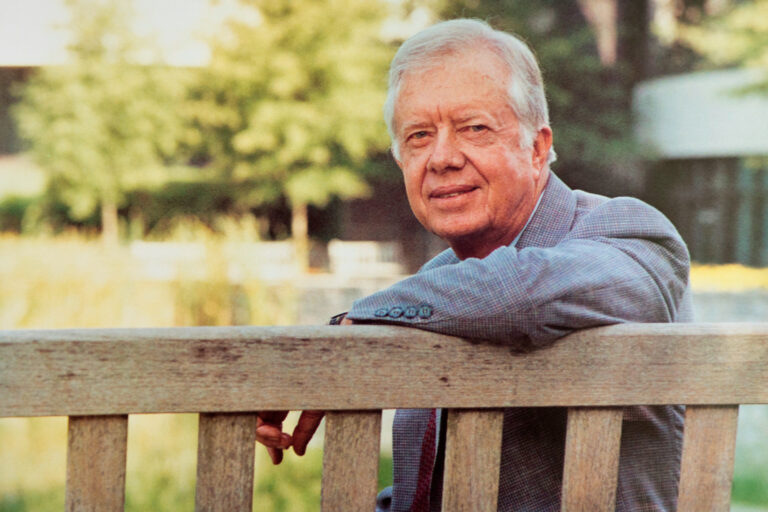Marcus Walsh-Führing is a Postdoctoral Fellow at JHU SAIS Europe who will obtain his Ph.D. in Political Science from the University of Bremen (expected 2019). His doctoral dissertation at the University of Bremen, Self-Regulation and Taxation in the Brazilian State, 1960-2010: Complexity and Challenges, provides a historical account and analysis on the interdependency between tax policy, state-owned enterprises, and regulatory policy in Brazil. Marcus’ research interests focus on Latin America, the European Union (EU), transatlantic relations, governance, party politics, and regulatory autonomy. Marcus has published numerous reviews in: The Journal of Common Market Studies, Capital & Class, International Affairs, and International Studies Review.
Review of Weinrib, Laura M. The Taming of Free Speech: America’s Civil Liberties Compromise (Cambridge: Harvard University Press, 2016)
The Taming of Free Speech: America’s Civil Liberties Compromise offers a new historical revisionist perspective on the fight over civil liberties, such as free speech, and the commitment involved from interest groups to amend the constitution. In the past, scholars’ accounts have analyzed the debate on the limits of free speech and concluded that the judiciary should have control over regulation Furthermore, these scholars – for example, Morris Ernst and Sam Lebovic – have represented the opinion that the American Civil Liberties Union (ACLU) acquired the right to free speech through strong legal grounds law, based on the reasoning that it would provide pluralism through a participatory democracy.
In contrast to previous literature, Laura M. Weinrib finds that the judiciary expanded the First Amendment right to free speech as early as the Warren Court through the Lochner v. New York Supreme Court case in 1905, which invalidated the Liberty of Contract in the due process rights of the 14th Amendment and property rights. Weinrib’s main argument is that civil liberties expanded through “Lochnerization” during the New Deal Settlements: United States v. Caroline Products Company. In this case, the Supreme Court changed Congress’s structural restraints by giving it more control over the economy to promote industrial policy in support of the war effort.
Furthermore, the ACLU was now able to use the support of constitutionality for ethnic and racial minorities along free speech lines by aligning itself with business and association groups. The ACLU used the court decision as political leverage and precedent to promote its political agenda for the protection of free speech.
In the Lochner v. New York case, the Supreme Court struck down the New York law regarding maximum working hours because of the constitutional implication of “right to free contract.” This social and economic legislation challenged in the Lochner decision influenced future choices by the Supreme Court regarding its cases.
In the 1920s, the ACLU brought civil liberties to the forefront of political discussion. Despite the Bill of Rights being in place, the inability of the judiciary to act on civil liberties caused constraints on the relationship between the state and its citizens. As a result, civil liberties had limited effects on society. As an example of the shifts in civil liberties, Weinrib focuses on the creation of the ACLU as an offshoot of the American Union Against Militarism (AUAM) with an agenda to press the U.S. government for the expansion of civil liberties during WWI. In doing so, the author illustrates the conflict between citizens and the state over civil liberties and the aim of the AUAM to create a balance between social interests and to promote civil liberties.
Weinrib states that the AUAM was able to find political space to push for greater civil liberties due to the economic codependency between employers and labor in the war effort. This codependency developed the connection between political and economic conditions of free marketplace ideas and laissez-faire capitalism and, in the push for civil liberties, opened the door for civil agitation, particularly in the forms of picketing and striking.
The modern conception of free speech was created by the ACLU at the end of the 1930s in support of the assertion that state power be blocked in reference to the constraints of free speech. The ACLU adopted a classical liberal conception of free speech that was based on the right of agitation to promote civil libertarianism regarding social inequalities in society. This was as a result of the 1920s era when civil liberties were gradually redefined as judicial checks on government abuses. This conventional interpretation of the gradual progress of civil liberties was a result of dissent from Supreme Court Justices Oliver Wendell Holmes Jr. and Louis Brandeis. As an extension of these views, Weinrib states that civil liberties have evolved out of a state-skeptical view of labor radicalism and were cultivated by a conservative legal tradition to preserve individual rights.
The new constitutional compromise implemented by President Franklin D. Roosevelt in 1937 expanded Congress’s control over economic regulation. As the state accepted pro-labor rhetoric from the ACLU and invoked civil liberties legislation, such as the Fair Labor and Standards Act, the discussion shifted from radical to mainstream. However, employers and lawyers were able to manipulate the precedent set by civil liberties as a legal weapon against state control over industry. In this context, Weinrib illustrates how employers acknowledged that there was no free exchange in ideas and that free speech would favor stakeholders with superior resources. As a result, the courts would no longer regard freedom of contract or right of property as a way to challenge social progress. This created stagnation in the discussion of free speech by limiting the state to a neutral position. At the same time, it generated a marketplace of ideas that could be hijacked by private economic actors and lobbyists by diffusing its agenda through the workforce and public forum. Weinrib describes the ACLU’s relationship with business as one that did not discriminate between business and labor but had an obligation to uphold civil liberties with a deep distrust of the state because of its history of repressing civil liberties.
The Taming of Free Speech illustrates a comprehensive account of the power of government and business elites and their connection to the weaker elements in society regarding civil liberties. Despite the conflicting relationship between government and “union radicals,” the ACLU was able to find only limited protection for itself from business and the state in the constitution. Weinrib argues that the promotion of a marketplace of ideas to provide alternatives in the challenge of the status quo is the best way to combat injustice in civil liberties.
In drawing the readers’ attention to the New Deal settlements and the expansion of the state regarding civil liberties, the author provides a new and interesting approach in analyzing how the ACLU strategy evolved to protect civil liberties in a changing political landscape. This revisionist perspective of the evolution of civil liberties is well researched and accessible even to readers with reservations about this approach. The ACLU’s political success in strengthening free speech has allowed big business to expand its political reach through consolidating political power and gaining greater access to government through capital. The success of big business counters the political aims of the ACLU, thereby creating greater societal inequality. Scholars interested in the fight over civil liberties and what it takes to amend the constitution will benefit from reading Weinrib’s work.



